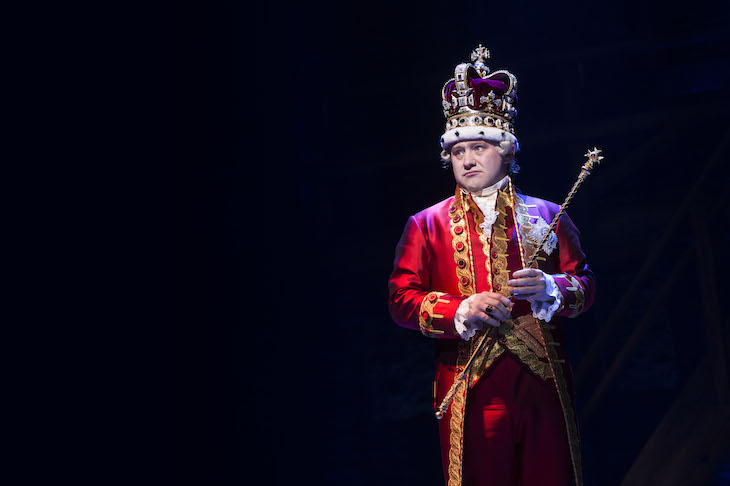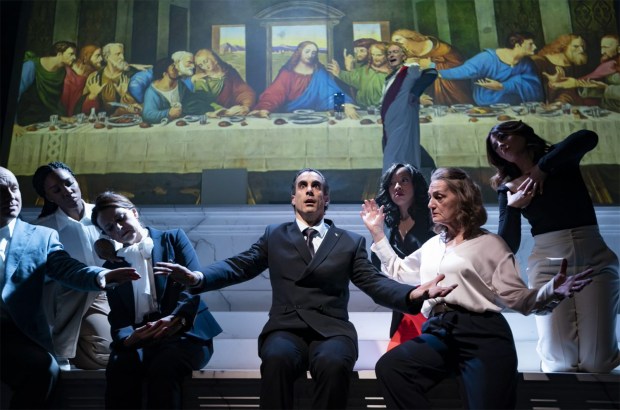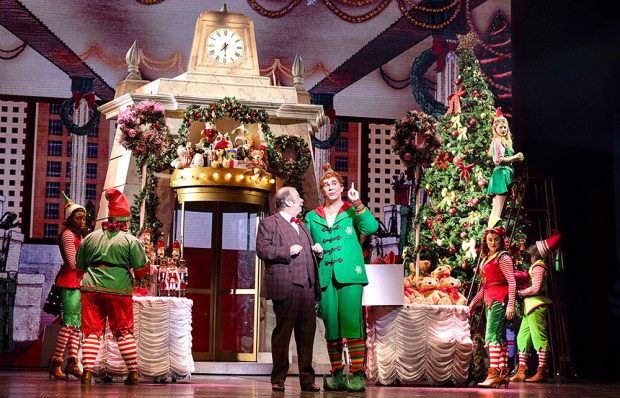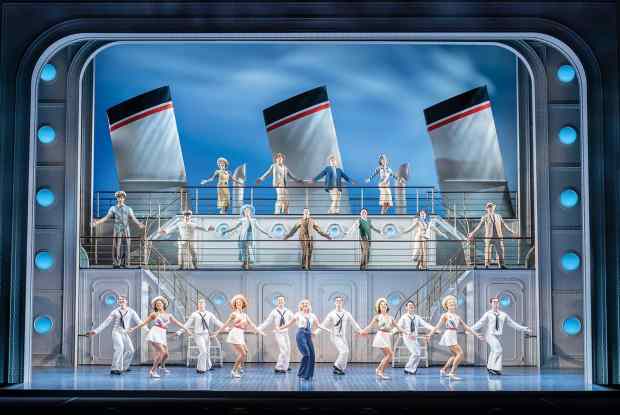It’s all about the rhythm. Hamilton is a musical that tells the story of America’s foundation through the medium of rap. It sounds crazy but it works because the show’s arsenal of effects is simply overwhelming. The lyrics drive the narrative, the rap gives energy to the lyrics, and the dancers double the effect by adding a visual complement to the pulsing soundscape. Dramatic lighting, synchronised with the music, provides a final sensory flourish. It’s like being softly slapped across the face with a beautiful velvet glove. The set is a luxuriantly solid affair, like a five-star hotel inspired by Wild West themes. Two wooden staircases soar up towards a raised gallery draped with thick lassos. Dancing girls in white corsets and super-tight jodhpurs slink around the stage, pouting, posing, displaying their trim curves.
The show’s lyrics are sometimes witty, sometimes clunky. On the page they look feeble. ‘What is a legacy? Planting seeds you never get to see.’ That quote seems artless and lazy but performed on stage, and backed up by an aggressive martial rhythm, the line has a vibrancy that the printed word can’t evoke. And the rap idiom proves surprisingly flexible. Everyone knows that rap is an ideal conduit for the expression of impotent and churlish rage, but here it finds new registers: grandeur, majesty, romance, comedy.
We first meet Hamilton as a tough young lawyer in New York determined to join the rebellion against British rule. The war of independence starts and Hamilton lobbies to be given a command. He’s rebuffed but when he urges a platoon of soldiers to seize British artillery at Brooklyn he attracts the attention of General Washington. With the future president behind him, Hamilton’s career takes off. After the war, he becomes involved in the lengthy series of conferences that led to the creation of the United States. This takes up much of the second half. The characters use rap to discuss federal funding arrangements, constitutional quibbles, the president’s right to declare war, the formation of the State and the Treasury departments. In one section, Hamilton delivers a paragraph of rhyming lyrics explaining why America’s treaty obligations with France expired when the French executed the king in whose name the pact had been signed. This is hardly the stuff of most West End shows. One imagines Vernon Bogdanor renting a box for his fellow constitutional experts and thinking, ‘At last, a musical just for us!’
When Washington withdraws from public life, Hamilton is encircled by his wily enemies, Jefferson and Madison. A few fidgety coughs were detectable during these passages, which lack interest for British audiences. Hamilton’s career reaches its peak when he becomes the first secretary of the US Treasury but an envious colleague challenges him to a duel. The atmosphere of aggressive masculinity never varies. ‘Ladies?’ says Hamilton at one point. ‘There are so many to deflower.’ The female characters are reduced to a handful of predictable cameos: the doting wife, the smitten virgin, the minx on the prowl.
The most striking aspect of the show is its political component. The producers want us to believe that Hamilton belonged to an oppressed minority. He was born out of wedlock in the Caribbean and was orphaned early in his childhood. As a teenager in the 1770s he sailed from the West Indies to Boston. We’re told that this qualifies him as an ‘immigrant’. (Probably the wrong word for a traveller moving from one British dependency to another.) As a homage to his Caribbean origins, Hamilton is played by a mixed-race actor, Jamael Westman. And ethnic-minority performers also play the roles of Jefferson, Madison, Burr and Washington. The idea is to suggest that America’s thrust and energy are derived from the talents of incomers irrespective of their origin. This isn’t entirely true, of course, and by creating this Caribbean version of America’s early history the show manages to dodge some unwelcome facts. The founding fathers included prosperous white capitalists who used black slaves as concubines and labourers. Black Lives Matter must be hopping mad with this musical. Not only does it pretend that black and white Americans existed on terms of equality in the 18th century, it has the temerity to invite black audiences to pay money to watch a false version of their own history.
Got something to add? Join the discussion and comment below.
Get 10 issues for just $10
Subscribe to The Spectator Australia today for the next 10 magazine issues, plus full online access, for just $10.
You might disagree with half of it, but you’ll enjoy reading all of it. Try your first month for free, then just $2 a week for the remainder of your first year.














Comments
Don't miss out
Join the conversation with other Spectator Australia readers. Subscribe to leave a comment.
SUBSCRIBEAlready a subscriber? Log in